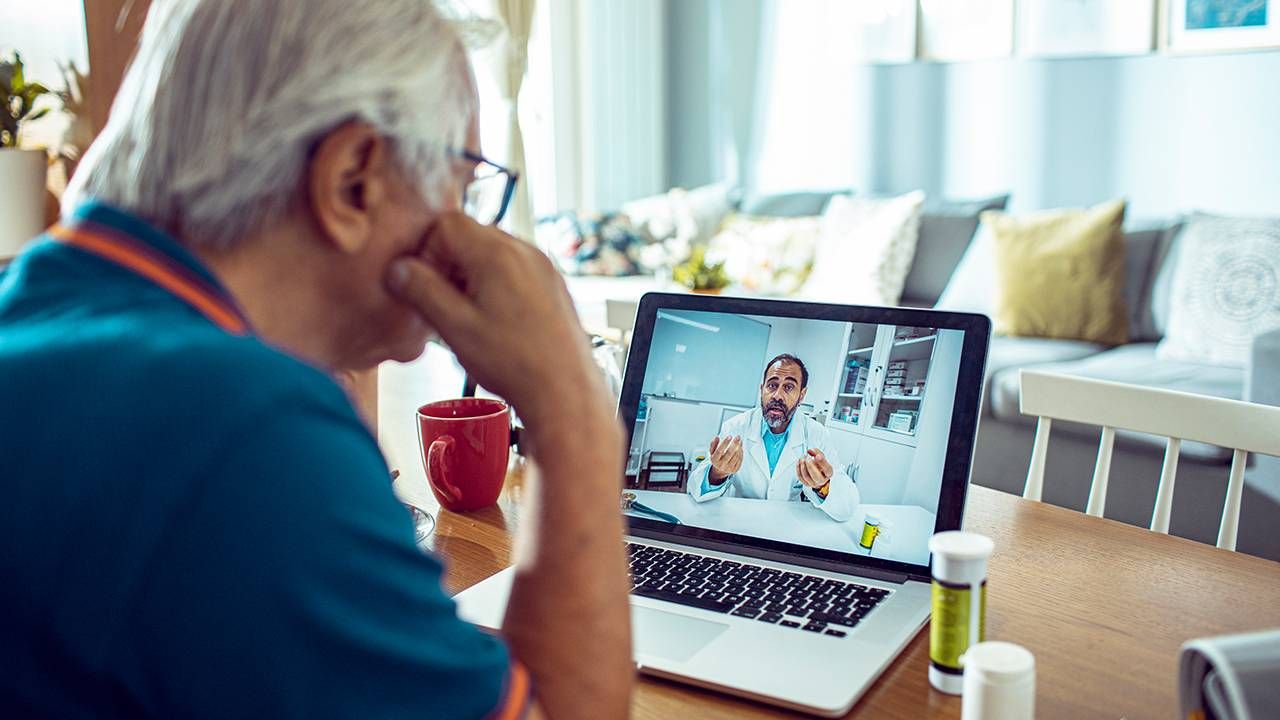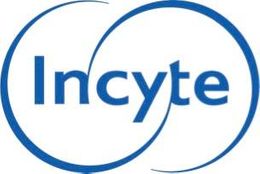What Stem Cell Transplant Recipients Need to Know about Graft-versus-Host Disease (GVHD)
The importance of advocating for your own health following a transplant

(Editor's Note: This content is sponsored by Incyte Corporation.)
After moving to Las Vegas and starting a job at a car dealership, David became disappointed in his health and the weight he had gained over the years. (David prefers not to reveal his last name for privacy.)
As a result, he decided to sign up for a medical weight loss clinic to help manage his weight and take more control of his health. An initial blood test showed that David's white blood cell count was substantially elevated, and the physician's assistant recommended David go to the emergency room right away.
"I was diagnosed with stage four non-Hodgkin lymphoma (NHL) and was surprised to learn that I had been sick for quite a while without showing signs or symptoms," said David.
David began chemotherapy and started showing signs of improvement. However, after a CT scan revealed that the lymphoma had recurred, his oncologist urged him to have a stem cell transplant. He underwent an allogeneic stem cell transplantation, a type of stem cell transplant that uses stem cells from a donor, with donated stem cells from his sister. About five weeks after being discharged, he broke out in a rash that covered his abdomen, chest, shoulders, back and arms and was diagnosed with a condition known as acute graft-versus-host disease (GVHD).
GVHD is a condition that can occur after an allogeneic stem cell transplant when healthy donated cells begin to see the patient's body as unfamiliar and foreign, triggering an immune response to attack the patient's organs.(i) The two major forms of GVHD, acute and chronic, affect different organs and tissues and can range in severity from mild or moderate to life-threatening, making it difficult to diagnose.(ii)
Acute GVHD can occur in 30-70% of transplant recipients and is often diagnosed within the first 100 days after a transplant.(iii,iv,v,vi) Acute GVHD can affect multiple organ systems including the skin, gastrointestinal (digestive) tract and liver.(ii) The likelihood of developing acute GVHD increases with age and may be higher in patients whose transplanted cells came from an unrelated or mismatched donor or male patients whose transplanted cells came from female donors (especially females who have given birth more than once).(vii)
Living with a rare and life-threatening condition like acute GVHD presents significant challenges, especially during this unprecedented time of isolation and social distancing. "Throughout my treatment journey, my family and friends have given me strength and shown their support, and I have learned to be more vigilant and remain in close contact with my physician," said David. During this challenging time, here are several helpful tips for transplant patients and those living with GVHD:
- Educate yourself about potential complications, such as GVHD, prior to an allogeneic stem cell transplant. Consult with your transplant team and doctor right away if you notice any of the most common symptoms of GVHD after a stem cell transplant, including a rash, blisters on the skin, abdominal cramps, diarrhea, nausea, vomiting and yellowing of the skin or eyes. Early detection of symptoms and treatment can make a big difference and can help prevent permanent organ damage.(ii)
- Educate yourself about your condition, ask questions and maintain good communication throughout the treatment process with your transplant care team. Communication may seem difficult during self-quarantine, but it is important to be proactive and diligent throughout your treatment journey. Schedule calls or telemedicine sessions with your doctor if appropriate.
- Advocate for your health. Keep a health diary of your changing symptoms and how you are feeling. Voice any concerns to your health care team.
- Maintain a close support network. Plan regular video chats and/or phone calls with your family and friends to find the support and strength needed to stay mentally healthy and feel closely connected to others during restrictions of social distancing.
"While it hasn't been easy, I feel like I have a lot of time left and am not ready to leave this world any time soon," said David. "I am grateful to my oncologist and healthcare team for their care, as well as those who are continuously working and innovating for patients like me."
Visit BMT Infonet and nbmtLINK to learn more, find helpful tools and resources, and connect with others living with GVHD.*
*Organizations have received funding from Incyte Corporation.
The content presented in this article is not medical advice and should not replace a conversation with your health care professional, who is the best source of medical information about your individual diagnosis and management plan.
© 2021, Incyte Corporation. All trademarks are the property of their respective owners.
MAT-HEM-02078 03/21
(i) Types of Stem Cell Transplants for Cancer Treatment. American Cancer Society. https://www.cancer.org/treatment/treatmentsandsideeffects/treatmenttypes/stemcelltransplant.html. Accessed January 2021.
(ii) Graft-Versus-Host Disease. Leukemia & Lymphoma Society. https://www.lls.org/treatment/types-of-treatment/stem-cell-transplantation/graft-versus-host-disease. Published February 26, 2015. Accessed January 2021.
(iiii) Dignan FL, et al. Diagnosis and management of acute graft-versus-host disease. Br. J. Haematol. 2012;158(1):3045.
(iv) Nassereddine S, et al. Acute graft versus host disease: a comprehensive review. Anticancer Res. 2017;37(4):15471555.
(v) Chao NJ, et al. Clinical manifestations, diagnosis, and grading of acute graft-versus-host disease. UpToDate. https://www.uptodate.com/contents/clinical-manifestations-diagnosis-and-grading-of-acute-graft-versus-host-disease. Accessed January 2021.
(vi) Hill L, et al. New and emerging therapies for acute and chronic graft versus host disease. Ther Adv Hematol. 2018;9(1):21–46.
(vii) Jacobsohn DA, et al. Acute graft versus host disease. Orphanet J Rare Dis. 2007;2:35.

Incyte is a Wilmington, Delaware-based, global biopharmaceutical company focused on finding solutions for serious unmet medical needs through the discovery, development and commercialization of proprietary therapeutics. For additional information on Incyte, please visit Incyte.com and follow @Incyte.

